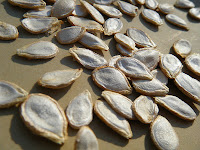 Years from now, will our children and grandchildren have the choice to grow their own organic food or at least be able to buy it from a US farmer? Will the air, water and soil around them be close enough to what our Creator intended to support healthy life? Will they look back and thank us for doing everything we can to protect their future? A brave group of forward thinking farmers is pondering these questions and planning a quiet show of solidarity today in court.
Years from now, will our children and grandchildren have the choice to grow their own organic food or at least be able to buy it from a US farmer? Will the air, water and soil around them be close enough to what our Creator intended to support healthy life? Will they look back and thank us for doing everything we can to protect their future? A brave group of forward thinking farmers is pondering these questions and planning a quiet show of solidarity today in court.Don Patterson's return to New York this week is miles away from the dairy farm where he grew up in the western part of the state. He plans to be inside a federal courtroom in Manhattan, sitting side by side with dozens of farmers who've taken time off from their busy way of life. It's not the first time he's joined in support of old-fashioned agriculture. He was concerned about the looming demise of the family farm back in the 1970s, when citizens got so frustrated with the economic situation that they drove their tractors to Washington, DC. Patterson says this time around, there's even more at stake.
"If people understood the problem," says Patterson, referring to the state of the food supply and the choice to eat organically, "there would be no question as to what they would be doing." He's frustrated to hear apathy and misunderstanding from folks who don't seem to care whether their food is grown conventionally or organically, with the calculated combination of what he calls "transgenics" and pesticides or through openly pollinated varieties. "We're the first civilization to put poison on our food before we eat it. It makes no sense," Patterson laments.
The semi-retired Virginia farmer and activist is one of dozens of plaintiffs taking on agricultural giant Monsanto, with legal assistance from the Public Patent Foundation. They want to protect themselves against a system where organic and sustainable farms are increasingly unable to produce food completely free from the threat of Monsanto's genetically engineered seeds or from patent infringement lawsuits.
The plaintiffs and thousands who support them speak to a larger issue about everyone's right to healthy food grown without polluting our backyards. Patterson says, "I'm a Jeffersonian who believes that farmers are the backbone of the democratic ideal." A large turnout to hear oral arguments will emphasize to a judge that the issue deserves its day in court. Specifically, lawyers will be arguing about patent law. Patterson says that outside the court will be another show of support and education to bring awareness about food policy. "We can show the judge that there are real people who are very concerned about this issue. It's not an academic issue."
Sow True Seed has an article on 5 ways you can support the farmers.
The Public Patent Foundation has more information.
